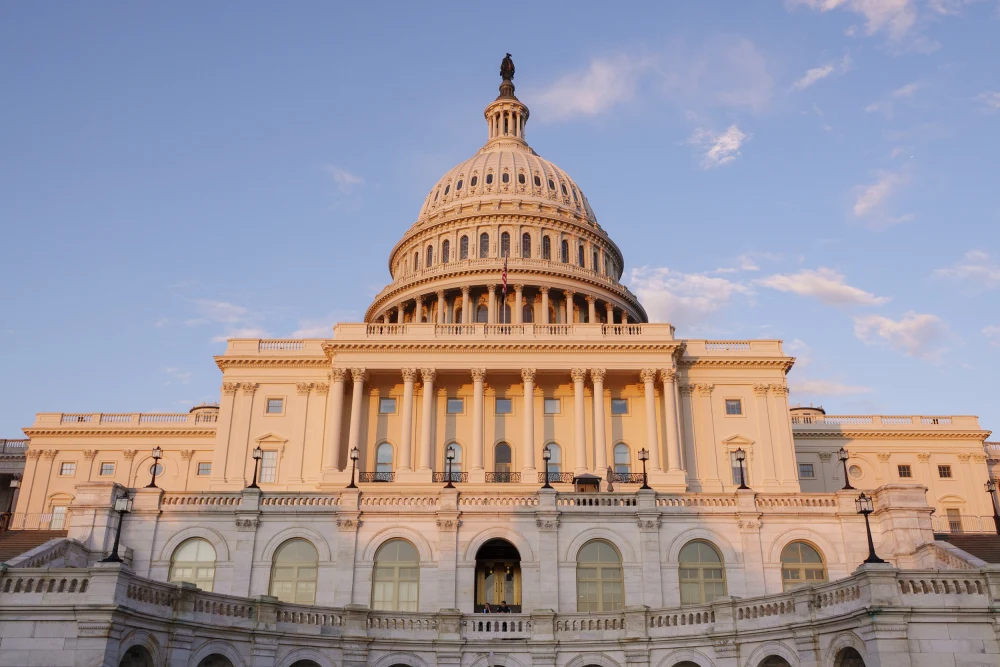Landmark Tech Regulation Bill Passes Senate Without AI Moratorium Provision
A sweeping technology reform bill has cleared the Senate with bipartisan support — but efforts to include a temporary moratorium on artificial intelligence legislation were ultimately left out, sparking debate across the political spectrum.
In a major legislative development, the U. S. Senate has passed a comprehensive tech reform bill — dubbed by its proponents as the “Big, Beautiful Bill” — with strong bipartisan support.
The bill touches on digital privacy, data portability, cybersecurity standards, and antitrust measures aimed at reigning in Big Tech. But one highly controversial component was notably absent: a proposed moratorium on artificial intelligence (AI) legislation. Despite months of lobbying and public discourse surrounding the potential need to temporarily pause federal AI regulation, lawmakers ultimately chose not to include any such provision in the final text of the bill.
The omission has ignited a firestorm of reactions from lawmakers, industry leaders, civil rights organizations, and AI researchers. ### What the Bill CoversThe legislation, officially named the Digital Policy Modernization Act of 2025, is the most sweeping tech reform effort since the Telecommunications Act of 1996. Its key provisions include:- Federal Data Privacy Framework: Establishes nationwide standards for how companies collect, store, and share personal data, mirroring aspects of Europe’s GDPR.
- Data Portability Requirements: Mandates that major platforms allow users to easily export their data and transfer it between services. - Cybersecurity Benchmarks: Sets new standards for federal contractors and critical infrastructure providers, including mandatory breach disclosures within 72 hours. - Antitrust Enforcement: Strengthens the Federal Trade Commission’s authority to investigate and break up monopolistic practices by tech giants.
Lawmakers on both sides of the aisle hailed the bill as a victory for American consumers and digital sovereignty. “This bill puts people before platforms,” said Sen. Maria Elridge (D-MA), a key co-author.
“For too long, Big Tech has operated with impunity. This brings transparency, accountability, and real rights to users. ”Sen.
Ben Halverson (R-UT), who helped shepherd the bill through bipartisan negotiations, added: “It’s a big, beautiful bill that balances innovation with protection. It doesn’t choke startups. It reins in monopolies.
It’s the reform we’ve needed for over a decade. ”### The AI Moratorium DebateNot everyone is celebrating. The most divisive issue during the bill’s drafting process was whether or not to include a temporary moratorium on new AI regulations.
Proponents of the moratorium — including some tech executives, AI researchers, and national security officials — argued that the pace of AI development is too rapid and complex for current legislative frameworks. Sen. Paul Warrick (I-MO), who pushed for the moratorium, said, “Before we pass sweeping laws on AI, we need time to study the consequences.
We risk overregulating technologies we don’t yet fully understand, or worse, passing laws that entrench bad actors and shut out innovators. ”Warrick’s proposal would have paused all new AI-specific legislation for 18 months while a federal task force studied safety, fairness, and economic impacts. But privacy advocates, civil rights groups, and some tech ethicists fiercely opposed the idea.
### Why the Moratorium FailedUltimately, the Senate rejected the AI moratorium amendment by a narrow 52-48 vote. Critics of the pause argued that delaying regulation could leave the public vulnerable to immediate harms posed by AI systems, including algorithmic bias, misinformation, deepfakes, and automated surveillance. “AI is already shaping our economy, our elections, our healthcare system, and our criminal justice system,” said Sen.
Rochelle Martinez (D-CA), a longtime advocate for AI transparency. “A delay is not neutrality — it’s permission to cause harm. ”Civil rights groups, including the ACLU and the Algorithmic Justice League, issued joint statements praising the Senate’s decision to move forward without a moratorium.
Meanwhile, some tech companies such as OpenFuture AI and SynthSys Corp. warned that the lack of a coordinated pause might lead to “regulatory whiplash” and fragmentation across states. ### Industry Response: Relief and UncertaintyIn Silicon Valley and beyond, industry reactions have been mixed.
Companies applauded the clarity offered by new data privacy rules but remained divided on how to handle AI governance. Meta and Google issued cautious endorsements of the bill. “We welcome a consistent privacy framework and appreciate the Senate’s diligence,” said a Google spokesperson.
“We continue to urge thoughtful, agile AI regulation that reflects global norms. ”Elon Musk, who had previously supported a pause in AI development through his involvement with the Future of Life Institute, criticized the Senate’s decision on X (formerly Twitter): “Ignoring the call for an AI moratorium is shortsighted. This tech will soon outpace us if we’re not careful.
”OpenAI, on the other hand, emphasized collaboration over pause. CEO Sam Altman stated, “We agree regulation is necessary, but we believe in building it in parallel with innovation. We’re glad to see AI policy not being delayed indefinitely.
”### What the Public ThinksRecent polling suggests that the public is concerned about AI risks — but not necessarily in favor of halting legislation. A Gallup survey conducted in June 2025 found that 61% of Americans support federal regulation of AI, while only 23% favored a legislative moratorium. Many citizens are already experiencing AI in everyday life — from automated resume screening and predictive policing tools to chatbots in healthcare and education.
Several high-profile incidents involving AI-generated misinformation and biased algorithms have fueled calls for stronger oversight. ### Global Impact and GeopoliticsThe passage of the Digital Policy Modernization Act without the AI moratorium has global implications. Europe, China, and the UK are all rapidly developing AI governance frameworks, and the U.
S. move will shape international norms. China’s tech ministry immediately issued a statement comparing the U.
S. bill to its own AI rules. “The U.
S. Senate has chosen deregulation over precaution,” it said, suggesting that U. S.
AI platforms may now gain a competitive advantage. Meanwhile, European lawmakers expressed concern that the U. S.
lacks adequate safeguards. “This approach prioritizes economic competition over human rights,” said Eva Jung, chair of the EU’s Digital Rights Committee. ### What’s Next for AI Policy?While the moratorium didn’t pass, the debate is far from over.
Multiple Senate and House committees are now working on separate AI-specific bills, including:- An AI Accountability Act, requiring transparency in high-risk use cases. - A proposed National Registry for AI Models used in public sector decisions. - A bill establishing a Federal AI Standards Institute, akin to the FDA but for algorithms.
President Biden is expected to sign the Digital Policy Modernization Act into law next week, but his administration has also signaled interest in issuing executive orders focused on AI ethics and procurement standards. White House tech adviser LaToya Greene emphasized the need for speed: “We can’t regulate tomorrow’s problems with yesterday’s laws. AI requires continuous governance, not a pause button.
”### ConclusionThe Digital Policy Modernization Act of 2025 marks a watershed moment in American tech policy — introducing robust digital rights for users while strengthening the federal government’s hand in shaping the online ecosystem. Yet its omission of an AI moratorium reflects deep divisions about how — and when — to regulate emerging technologies. Supporters of the bill argue that forward momentum on data and competition issues was too important to stall.
Critics counter that ignoring AI risks could open the door to new, unforeseen harms. Either way, one thing is certain: the debate over AI governance has only just begun.
6th July 2025



